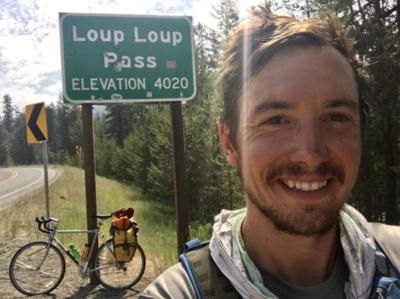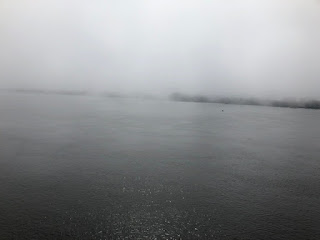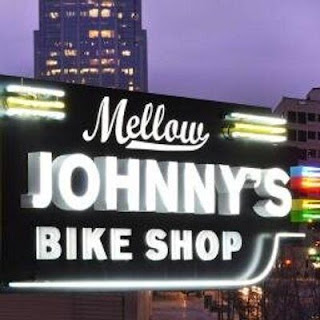Late today, I took Negrosa, my black Mercian Olympic, on a no-planned-destination ride.
After zigzagging through some industrial areas and blocks of brick rowhouses, I descended the long hill from Ridgewood, Queens to Cypress Hills, Brooklyn. After some more zigging and zagging along and around the Brooklyn-Queens border, I found myself in a place I hadn't visited in a while.
"The Hole," which I've mentioned in earlier posts, is an alternative universe between Brooklyn and Queens, near the South Shore of both boroughs. The land--and incongruously-named streets (Ruby, Sapphire, Amber)--drop suddenly behind a shopping center and a row of doctors office-type buildings on Linden Boulevard. Not much seems to have changed since the last time I visited:
My guess is that those who live and work--legitimately or not--in the area want to keep it that way. Why else would they stay in a place that practically forces them to live and work like Okies or folks in rural Appalachia before World War II? I mean, it's still not hooked up to the city's sewer systems and some aren't even on the electrical grid. Oh, and I can't think of any place else in this city where a yard can fill with junked cars or school buses without attracting the attention of the Health Department.
A couple of guys, who were working on a truck, noticed me and nodded. As obvious an outsider as I am, I guess they didn't see me as a threat.
I am a cyclist, after all.
After zigzagging through some industrial areas and blocks of brick rowhouses, I descended the long hill from Ridgewood, Queens to Cypress Hills, Brooklyn. After some more zigging and zagging along and around the Brooklyn-Queens border, I found myself in a place I hadn't visited in a while.
"The Hole," which I've mentioned in earlier posts, is an alternative universe between Brooklyn and Queens, near the South Shore of both boroughs. The land--and incongruously-named streets (Ruby, Sapphire, Amber)--drop suddenly behind a shopping center and a row of doctors office-type buildings on Linden Boulevard. Not much seems to have changed since the last time I visited:
My guess is that those who live and work--legitimately or not--in the area want to keep it that way. Why else would they stay in a place that practically forces them to live and work like Okies or folks in rural Appalachia before World War II? I mean, it's still not hooked up to the city's sewer systems and some aren't even on the electrical grid. Oh, and I can't think of any place else in this city where a yard can fill with junked cars or school buses without attracting the attention of the Health Department.
A couple of guys, who were working on a truck, noticed me and nodded. As obvious an outsider as I am, I guess they didn't see me as a threat.
I am a cyclist, after all.









































